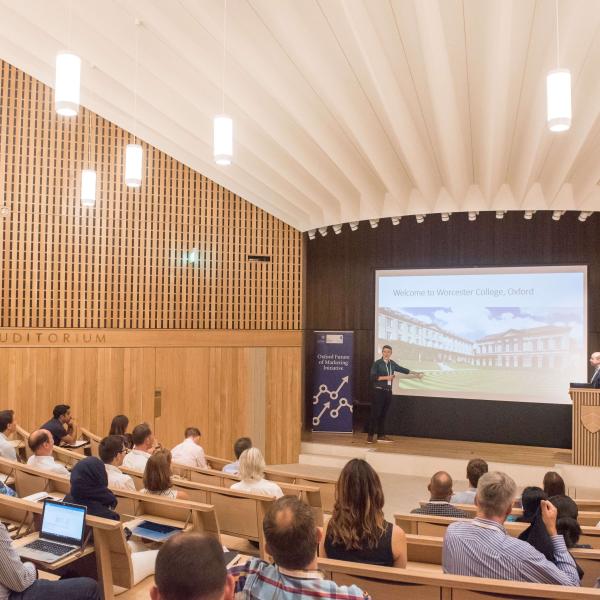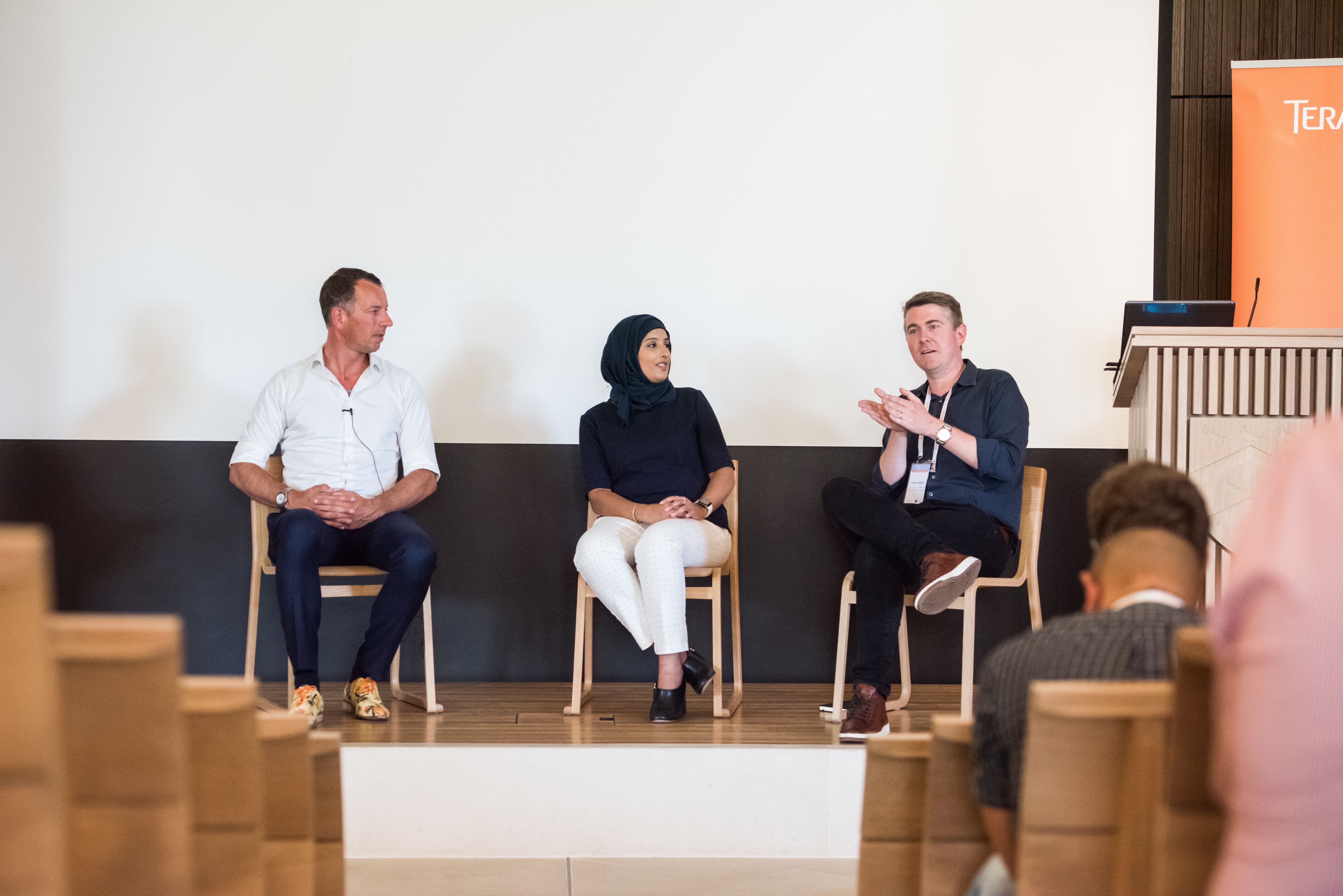About the event
Where new technology is concerned, there is always disruption to existing industries.
While there might be a lot of panicked hype to begin with, for the most part, technology brings improvements to existing processes rather than reinventing them entirely. It is no different with the marketing industry’s latest disruptor: AI and machine learning.
Digital disruption – whether involving automated technologies or being managed by humans – was the core theme of the Future of Marketing Initiative event, run jointly by Saïd Business School and Teradata, held on 6 July 2018.
Introducing the day, Professor Andrew Stephen of Saïd Business School and Martin Willcox of Teradata introduced the event by bringing the focus back to how we use data in marketing currently. No one yet knows how AI will impact our future processes, but that’s no reason to panic. As Martin Willcox pointed out: ‘AI now is where we were with the internet at the beginning of the dot-com boom. We adapted before, we will do it again.’
Data over content
President and CEO of Nucleus Marketing Solutions and Associate Fellow at Saïd Business School, Seth Rogin, focused the discussion on journalism and media: ‘These industries have been slow to adapt to the changing digital landscape, but big data should be viewed as an opportunity rather than a threat.’ Rogin is working with newspapers across the US to stop them competing against one another by finding their niche audiences – and the key to success, he said, was quality data.
Accurate targeting of the audience is rapidly overtaking content as the most important element in the journalism industry today. Consumers are starting to directly pay creators for content, with platforms such as Medium. This set-up proves the industry is still commercially viable but runs the risk of content being produced solely to please customers.
While marketers need to focus on the data, businesses need to steer clear of trying to find one jack-of-all-trades. As Andrew Stephen put it, ‘marketers need to be data-driven, understand advanced analytics as business partners and users of the information, and be great collaborators with data scientists in their organisations. But we don’t need marketers to be data scientists.’
The modern consumer
One of the panel discussions explored the issues facing our marketing futures as customers become savvier and have access to more options than ever before. How do you convince a customer to buy a product on the high street when they can check online for a cheaper option with their smartphone?
Ann Steer of N Brown highlighted the importance of a ‘quality customer proposition’, with a view to ‘step up our customer experience to keep customers coming back to us.’ Kantar’s Julie Kollman reassured the audience that ‘there will always be customers who shop solely on price but there are also customers who shop on wider value.’ David Radford of Allianz supported this idea, referencing the insurance market on comparison websites, ‘The cheapest [offers] are never from the market leaders… it highlights the importance of brand building.’
The development of the consumer landscape is being driven by Amazon, increasing expectations with their ability to deliver products almost immediately, argued Andrew Stephen: ‘We need to stop talking about millennials as the group that is always connected – we all are and we all have high expectations and a desire for instant gratification. To succeed, businesses need to invest in their data but not overlook the human skills when it comes to analysing and thinking creatively. We shouldn’t trust what the model tells us absolutely, but keep in mind the context in which the data was collected. There’s only so much data can predict or explain on its own.’
Marketing to the machines
It’s too late to worry about what impact algorithms will have on our daily lives, said Yasmeen Ahmad, Lead Data Scientist, Teradata. ‘Algorithms are already dictating many of our choices by recommending products to us or filtering certain websites to the top of your search results,’ she explained. ‘Humans only have so much brain capacity for decision making and we are currently overloaded. As a result, algorithms feel like a much-needed reprieve.’
But if we allow our buying habits to be entirely dictated by algorithms, what will this mean? Consumers will become passive parties, not engaging in the system at all, and instead of marketing to people, we will need to market to the algorithms themselves – machines marketing to machines. This might sound daunting, but as Yasmeen points out, ‘it is easier to market to algorithms, as they are more predictable than humans.’
Addressing the disruption
Automated and predictive buying is becoming commonplace, but we are hardly prepared to roll over and let algorithms dictate our entire lives for us. But as yet, we don’t know where the line is – what will people allow algorithmic buying to do for them? One problem is a perception of creepiness, though Andrew Stephen felt this fear might be over-hyped: ‘if it is relevant, there’s less of a concern about creepiness.’
Technology is moving at a rapid pace but we mustn’t let tech dictate our innovations. Yasmeen Ahmad stressed the importance of a cultural shift in marketing departments and how we look at analytics – we need to change from a calendar mindset to a constantly adjusting, ‘always on’ approach. ‘Never get complacent about your data, how you collect it, what you collect, or that you are collecting enough. There are always ways to improve your data collection and we need to be constantly challenging our assumptions,’ she said.
If there was one key takeaway from the insightful day, it was Andrew Stephen’s assessment of where businesses should be: ‘It isn’t enough to be customer-centric. We need to be customer obsessed.’

